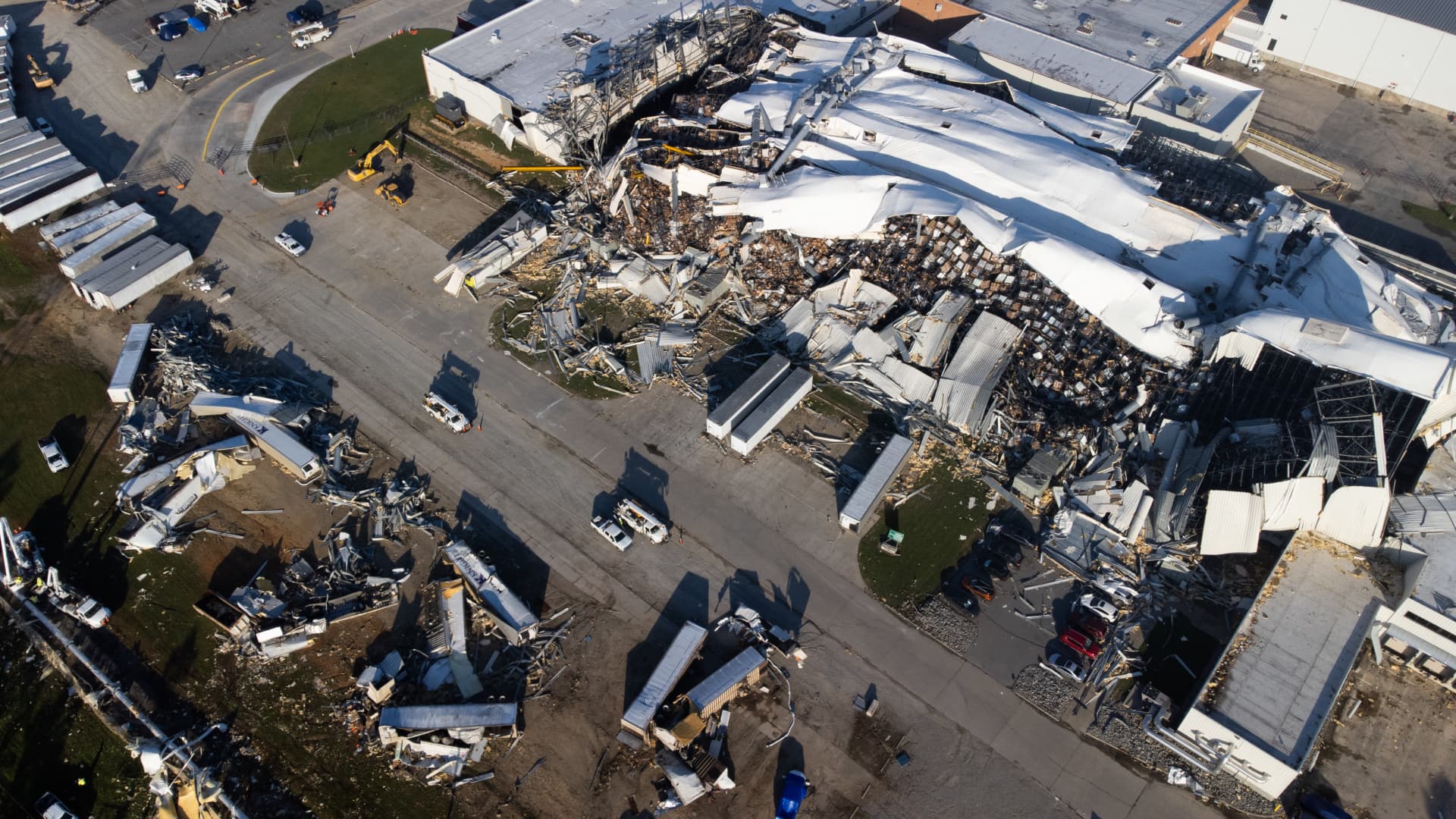Pfizer on Monday said it has restarted most production lines at a drug manufacturing plant that was severely damaged by a tornado two months ago, but added that some medicines from the facility may be in short supply until at least mid 2024.
In a statement, Pfizer stressed that it has only made the “first step toward full recovery” of its plant in Rocky Mount, North Carolina. The company expects the facility’s operations to fully resume by the end of the year.
The Rocky Mount plant supplies nearly 8% of all sterile injectable medicines used in U.S. hospitals, including anesthesia, analgesia, therapeutics, anti-infectives and neuromuscular blockers. The facility also manufactures about 25% of the company’s drugs in that category.
Pfizer in August warned hospitals that some medicines could see supply disruptions.
One injection from the plant was in short supply as of late last month, according to a database from the American Society of Health-System Pharmacists. It was a type of sodium chloride injection, which is used to replenish water and salt lost as a result of certain conditions.
Pfizer on Monday said it has restarted production of about 13 medicines, which were prioritized based on “patient need and inventory levels.” The company did not specify which drugs those are.
Pfizer said it is also continuing to monitor emergency request orders for certain medicines manufactured at the Rocky Mount plant. The company implemented the emergency ordering process in August to manage the distribution of 12 drugs “in high medical need.”
Pfizer’s announcement comes as the U.S. is already facing an unprecedented shortage of medicine, ranging from ADHD pills to pain medicine to injectable cancer therapies. Those shortages are driven by manufacturing quality control issues and surges in demand, among other factors.
